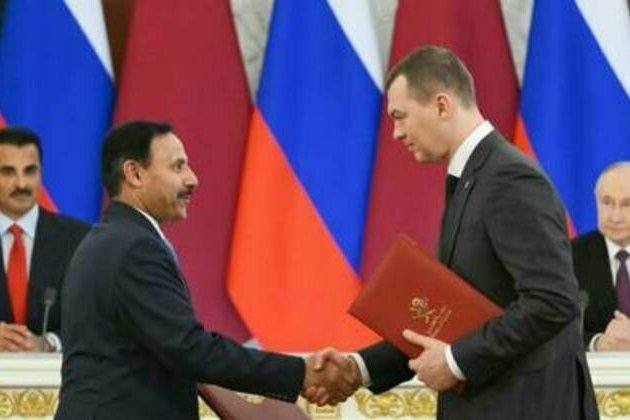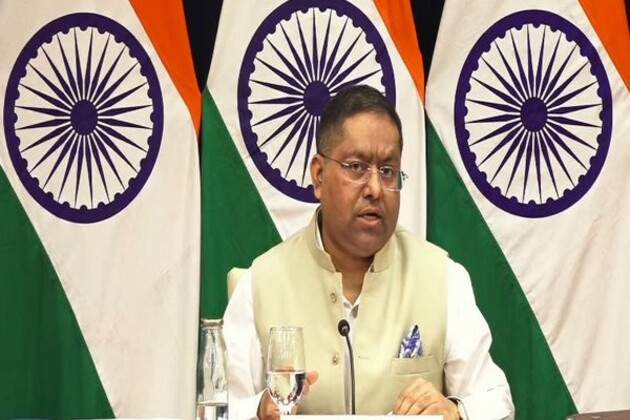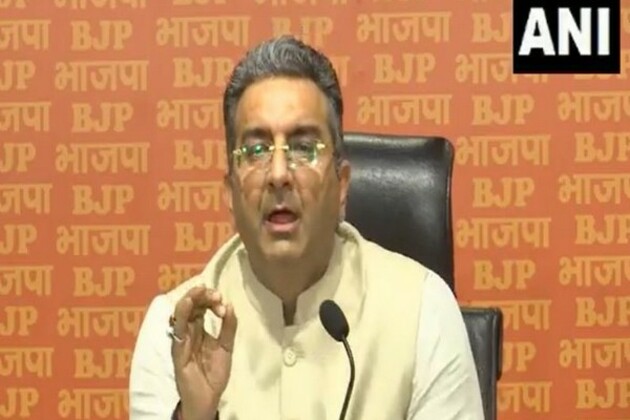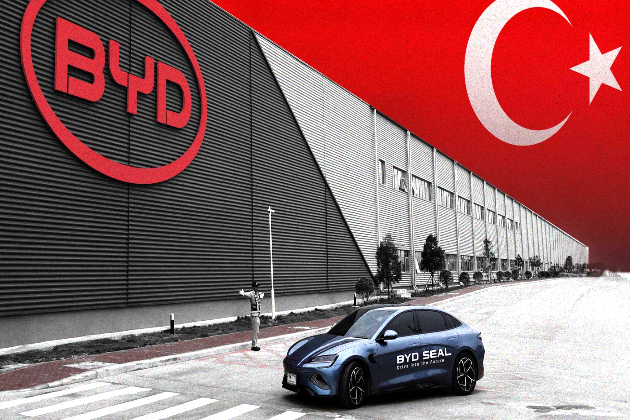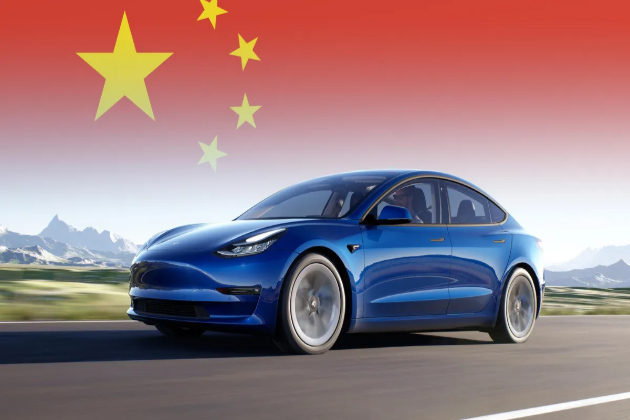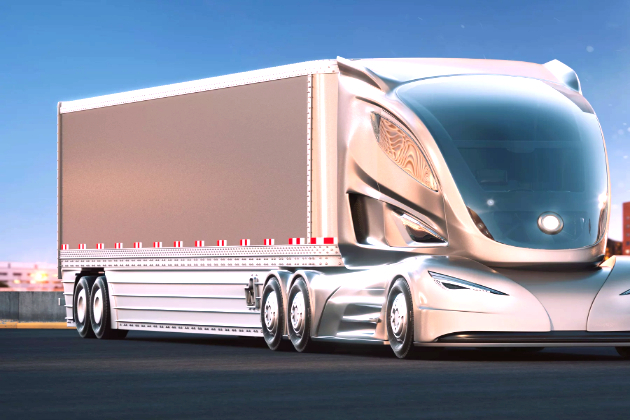Column: Why are the "Liberation Day" tariffs pie in the sky?
Xinhua
18 Apr 2025, 17:45 GMT+10

Customers shop at a Target store in Rosemead, Los Angeles County, California, the United States, on March 4, 2025. (Photo by Zeng Hui/Xinhua)As Thomas Sampson, associate professor of the Department of Economics at London School of Economics and Political Science, said: "Tariffs would not remove the underlying macroeconomic driver of the U.S. trade deficit. As long as the U.S. does not save enough to finance its own investment, it has to borrow from the rest of the world. And that requires it to run a trade deficit. Tariffs don't change that logic."by Jin LunAfter the U.S. government announced steep new tariffs on nearly all imports, Americans are hurrying to stockpile everyday essentials. This matters, for everyone.With the additional tariffs, prices will go up on clothes, fruits and vegetables, hitting all ordinary families. People employed in retail, restaurant and tourism have expressed concerns about possible job losses. U.S. stock markets saw the worst day in recent years, and millions of Americans watched their college and retirement funds dissolve along with the stock market.So far, the "Liberation Day" tariffs have brought only insecurity rather than prosperity. Even if manufacturing industries return, the average American's wallet would have already emptied.Why indeed is the U.S. government so obsessed with this so-called reciprocal tariff?MUTUALLY BENEFICIAL OR DISADVANTAGEOUS?The United States seems hostile to the underlying concept that trade can be mutually beneficial at all. It views the trade deficit as a significant disadvantage and is obsessed with eliminating the American trade deficit with all partners.Actually, a trade deficit simply means a country importing more goods and services than it exports, and it has little to do with the state of a country's economy. That's why 27 countries in the European Union have the same tariffs but different trade deficits and surpluses.The truth is, the United States has been enjoying mutually beneficial or sometimes favorable trading relationships with the world for decades. Diversified imports offer American consumers more choices (such as Mexican beer), lower prices (such as Canadian Lululemon leggings), and higher quality (such as French champagne). Exports of high-tech products such as aircraft and aerospace equipment, automobiles and pharmaceutical products enable America to stay on the higher end of supply chains.A "Shop Canadian" sign is seen at a supermarket in Vancouver, British Columbia, Canada, March 4, 2025. (Photo by Liang Sen/Xinhua)ABSURD LOGIC, ABSURD METHODThe possible consequences of the U.S. government's actions include higher costs for ordinary consumers and businesses engaged in international trade. Meanwhile, rashly bringing manufacturing back also leads to higher prices and less skilled production techniques.An American talk show makes a vivid analogy. The policy is like a consumer rushing into Levi's to buy jeans, only to beat up the owner for having to pay for the items and end up paying a higher price.Many economists point out that the U.S. government's way of calculating the tariff rate is simple and crude, contrary to the laws of economics. Washington takes the U.S. deficit with a country/region, divides it by U.S. imports from that country/region, and graciously -- though laughably throws in a 50-percent discount. It is absurd that such a complex economic problem can be solved by a somewhat childish calculation.THE REAL PROBLEMThe problem of the U.S. economy boils down to the imbalance between saving and consumption. As Thomas Sampson, associate professor of the Department of Economics at London School of Economics and Political Science, said: "Tariffs would not remove the underlying macroeconomic driver of the U.S. trade deficit. As long as the U.S. does not save enough to finance its own investment, it has to borrow from the rest of the world. And that requires it to run a trade deficit. Tariffs don't change that logic."The main idea behind the reciprocal tariffs is that the global economy should be perceived as a zero-sum game: Whoever gives the most is the loser; whoever takes the most is the winner.Actually, the entire postwar international order is based on the opposite idea -- that the world is a positive-sum game, where an interconnected system provides benefits to all participants despite the unequal distribution of costs and benefits.Ironically, the United States, which initially laid the groundwork for the current international order, has become its foremost challenger.Returning to a more granular level, how will the United States fare as the sweeping tariffs spark a trade war?The "Liberation Day" tariffs may have created an illusion of ample negotiating leverage, but in the long term, a trade war will inevitably backfire for the instigator.Editor's note: Jin Lun is a political commentator specializing in world affairs.The views expressed in this article are those of the author and do not necessarily reflect those of Xinhua News Agency.
 Share
Share
 Tweet
Tweet
 Share
Share
 Flip
Flip
 Email
Email
Watch latest videos
Subscribe and Follow
Get a daily dose of Manufacturing Mirror news through our daily email, its complimentary and keeps you fully up to date with world and business news as well.
News RELEASES
Publish news of your business, community or sports group, personnel appointments, major event and more by submitting a news release to Manufacturing Mirror.
More InformationSmall Business
SectionUS tariffs put pressure on India’s shrimp exports
GANAPAVARAM, India/GUAYAQUIL, Ecuador: India's shrimp exporters are facing mounting uncertainty as new U.S. tariffs threaten to disrupt...
Robert Vadra's questioning over in only one case, other witnesses to be examined: Sources
By Rajnish Singh New Delhi [India], April 18 (ANI): Businessman Robert Vadra's questioning in the Gurgaon land deal case is 'concluded...
Russia and Qatar strike $2bn investment deal
The two countries are expanding their partnership with a focus on technology, mineral extraction, and other areas of mutual interest...
"We are working closely with Belgian side on Mehul Choksi's extradition": MEA
New Delhi [India], April 17 (ANI): The Ministry of External Affairs (MEA) on Thursday confirmed that fugitive businessman Mehul Choksi...
BJP's Gaurav Bhatia slams Robert Vadra, calls Gandhi family 'Hereditary corrupt'
New Delhi [India], April 17 (ANI): Bharatiya Janata Party (BJP) leader Gaurav Bhatia launched a scathing attack on businessman Robert...
"No new question; all were repeated": Robert Vadra after ED's interrogation in Gurugram land case
New Delhi [India], April 17 (ANI): After the Enforcement Directorate interrogated him on Thursday in connection with the Gurugram land...
Automotive
SectionGlobal EV sales soar in March, led by China and Europe
LONDON, UK: Electric vehicle sales surged globally in March, with strong growth in China and Europe offsetting slower momentum in North...
GM to press pause on EV van production in Ontario
DETROIT, Michigan: General Motors is hitting pause on production of its BrightDrop electric vans in Ontario, Canda, citing the need...
China, EU talks could pave the way for price resolution
BERLIN, Germany: Talks between the EU and China could pave the way for a shift from tariffs to minimum price agreements on Chinese...
Tesla stops China Orders for US-made models amid trade tensions
BEIJING, China: Tesla has halted new orders in China for its two U.S.-made premium models as trade tensions between Washington and...
Aurora's driverless trucks to tackle tough weather post Texas launch
PITTSBURGH, Pennsylvania: Aurora Innovation says its driverless trucks will eventually be equipped to handle tough weather conditions,...
China-ASEAN economic, trade cooperation in fast lane
Lao crew members stage a performance aboard train No. D887 traveling along the China-Laos Railway on April 13, 2023. (Xinhua/Xing Guangli)...



